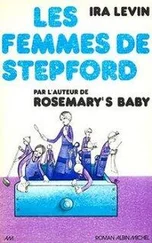“Who’s talking about stopping?” Liebermann knifed mashed potatoes onto the back of his fork. “All I said was I’m not going to go all the way up to Fagersta. I didn’t say I’m not going to go to other places, and I also didn’t say I’m not going to ask someone else to go up to Fagersta, someone who won’t need an interpreter.” He put the sausage-and-potatoed fork into his mouth.
They were in Five Continents, the restaurant in Frankfurt Airport. Saturday night, November 9th. Liebermann had arranged for a two-hour stopover on his way back to Vienna, and Klaus had driven up from Mannheim to meet him. The restaurant was expensive—Liebermann acknowledged the reproach of invisible contributors—but the boy deserved a good meal. Not only had he checked out the man in Pforzheim, whose jump, not fall, from a bridge had been witnessed by five people, but after Liebermann had spoken to him from Gladbeck on Thursday night he had gone down to Freiburg too, while Liebermann had gone to Solingen. Besides, his look of shrewdness—the small pinched-together features and glittering eyes—at close range seemed maybe only part shrewdness and the other part malnutrition. Did any of these kids eat enough? So, Five Continents. They couldn’t talk in one of the snack bars, could they?
August Mohr, the night watchman at the chemical plant in Solingen, had turned out to be, as Liebermann had thought he might, a civil servant by day—a custodial worker in the hospital where he had died. But fire officials had thoroughly investigated the explosion that killed him, and had traced it to a chain of mishaps they were certain couldn’t have been prearranged. And Mohr himself was as unlikely a victim of Nazi plotting as Emil Döring had been. Semi-literate and poor, a widower for six years, he had lived with his bedridden mother in two rooms in a shabby boarding house. For most of his life, including the war years, he had worked in a Solingen steel mill. Mail or phone calls from outside the country? His landlady had laughed. “Not even from inside, sir.”
Klaus, in Freiburg, had thought at first that he was on to something. The man there, a clerk in the Water Department named Josef Rausenberger, had been knifed and robbed near his home, and a neighbor had seen someone watching the house the night before.
“A man with a glass eye?”
“She wouldn’t have noticed, she was too far away. A big man in a small car, smoking, was what she told the police. She couldn’t even tell what make of car. Was there a man with a glass eye in Solingen?”
“In Gladbeck. Go on.”
But . Rausenberger had belonged to no international organizations. He had lost both his legs below the knees in a train accident when he was a boy; as a result he hadn’t done military service or even set foot—artificial foot, that is—outside Germany. (“Please,” Liebermann chided.) He had been an efficient and painstaking worker, a devoted husband and father. His savings had been left to his widow. He had disapproved of the Nazis and voted against them, but nothing more. Born in Schwenningen. Never in Günzburg. One notable relation: a cousin, the managing editor of the Berliner Morgenpost .
Döring, Müller, Mohr, Rausenberger; none of them by any stretch of the imagination Nazi victims. Four of the eleven.
“I know a man in Stockholm,” Liebermann said. “An engraver, from Warsaw originally. Very clever. He’ll be glad to go up to Fagersta. The man there, Persson, and the one in Bordeaux are the two main ones to check on. October sixteenth was the one date Barry mentioned. If neither of those two was someone the Nazis could have and would have killed, then he must have been wrong.”
“Unless you haven’t heard about the right man. Or he was killed on the wrong day.”
“‘Unless,’” Liebermann said, cutting sausage. “The whole thing is ‘unless’ this, ‘if’ that, ‘maybe’ the other. I wish to hell he hadn’t called me.”
“What did he say exactly? How did it all happen?”
Liebermann went through the story.
The waiter took their plates and their dessert orders.
When he had gone, Klaus said, “Have you realized that your name might have been added to the list? Even if it wasn’t Mengele, recognizing you by telepathy—which I don’t for a moment believe, Herr Liebermann; I’m surprised that you do—but if any Nazi hung up the phone, he certainly would have made it his business to find out who Barry was talking to. The hotel operator would have known.”
Liebermann smiled. “I’m only sixty-two,” he said, “and I’m not a civil servant.”
“Don’t joke about it. If killers were being sent out, why not give them one more assignment? With top priority.”
“Then the fact that I’m still alive suggests they weren’t being sent out.”
“Maybe they decided to wait awhile, Mengele and the Comrades Organization, because you knew. Or even called the whole thing off.”
“You see what I mean about the ‘ifs’ and the ‘maybes’?”
“ Did you realize that you may be in danger?”
The waiter put cherry cake before Klaus, a Linzer torte before Liebermann. He poured Klaus’s coffee, Liebermann’s tea.
When he had gone, Liebermann, tearing open a packet of sugar, said, “I’ve been in danger for a long time, Klaus. I stopped thinking about it; otherwise I would have had to close the Center and do something else with my life. You’re right; ‘if’ there are killers, I’m probably on the list. So finding out is still the only thing to do. I’ll go to Bordeaux and have Piwowar, my friend in Stockholm, go to Fagersta. And if those men too can’t have been victims, I’ll check out a few more, just to be sure.”
Klaus, stirring his coffee, said, “ I could go to Fagersta; I speak some Swedish.”
“But for you I’d have to buy a ticket, right? And for Piwowar, I won’t. Unfortunately that’s a factor. Also, you shouldn’t skip lectures so casually.”
“I could skip every lecture for a month and still graduate with honors.”
“Oh my. Such a brain. Tell me about yourself; how did you become so smart?”
“I could tell you something about myself that might come as a surprise to you, Herr Liebermann.”
Liebermann listened gravely and sympathetically.
Klaus’s parents were former Nazis. His mother had been on close terms with Himmler; his father had been a colonel in the Luftwaffe.
Almost all the young Germans who offered to help Liebermann were children of former Nazis. It was one of the few things that made him think God might be real and at work, if only slowly.
“We’re awful.”
“No we’re not, we’re smashing. Ought to be doing it on film.”
“You know what I mean. Look at us; one, two, and in the kip. Tuppence says you forgot my name.”
“Meg for Margaret.”
“Full name.”
“Reynolds. Tuppence please, Nurse Reynolds.”
“Too dark to find my purse. Will you settle for this?”
“Mmm, yes indeed. Mmm, that’s lovely.”
“‘Blushing shyly, she said, “It won’t be only this one night, sir, will it?”’”
“Is that what’s on your mind?”
“No, I’m thinking about the price of pickles. Of course it’s on my mind! This isn’t my usual modus vivendi, you know.”
“I say. ‘Modus vivendi’!”
“There’s a straight answer.”
“I wasn’t trying to be evasive, Meg. I’m afraid it may be only tonight, but not because I want it that way. I have no choice in the matter. I was sent up here to…do some business with someone, and he’s laid out in your bloody hospital, on oxygen, with no visitors except the immediate fam.”
“Harrington?”
“That’s the chap. When I call in and report I can’t get to him, I’ll probably be pulled right back down to London. We’re dreadfully short of staff at present.”
Читать дальше











